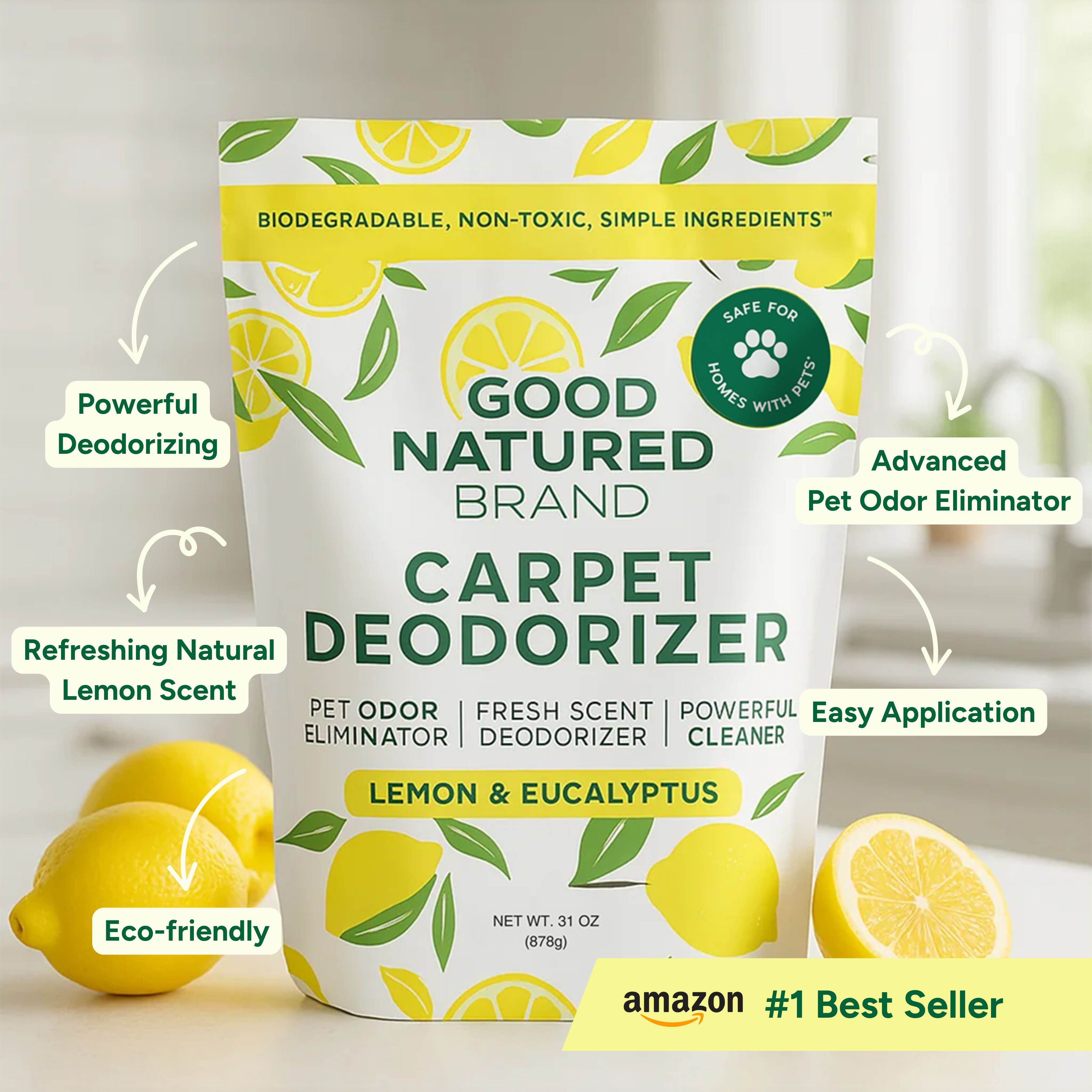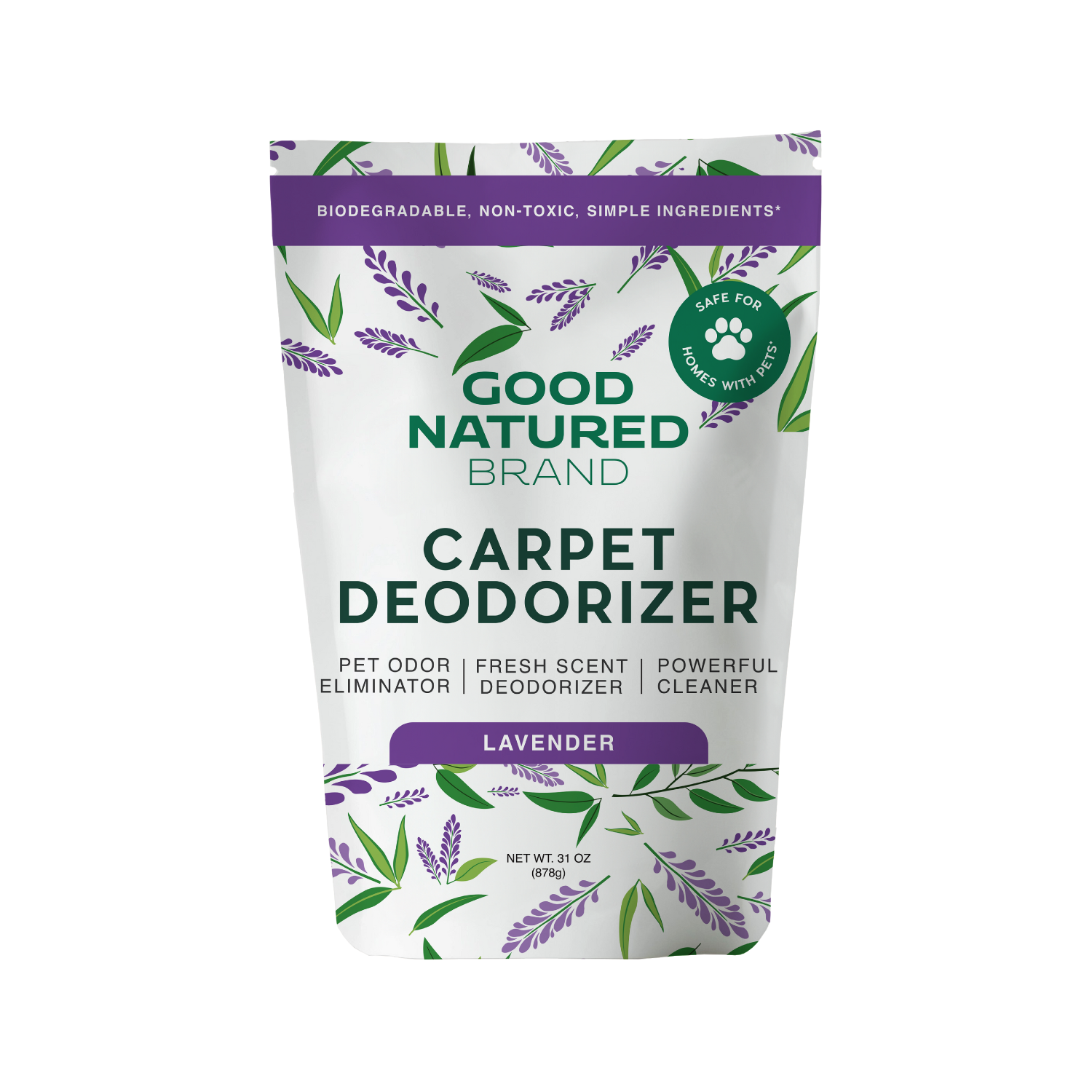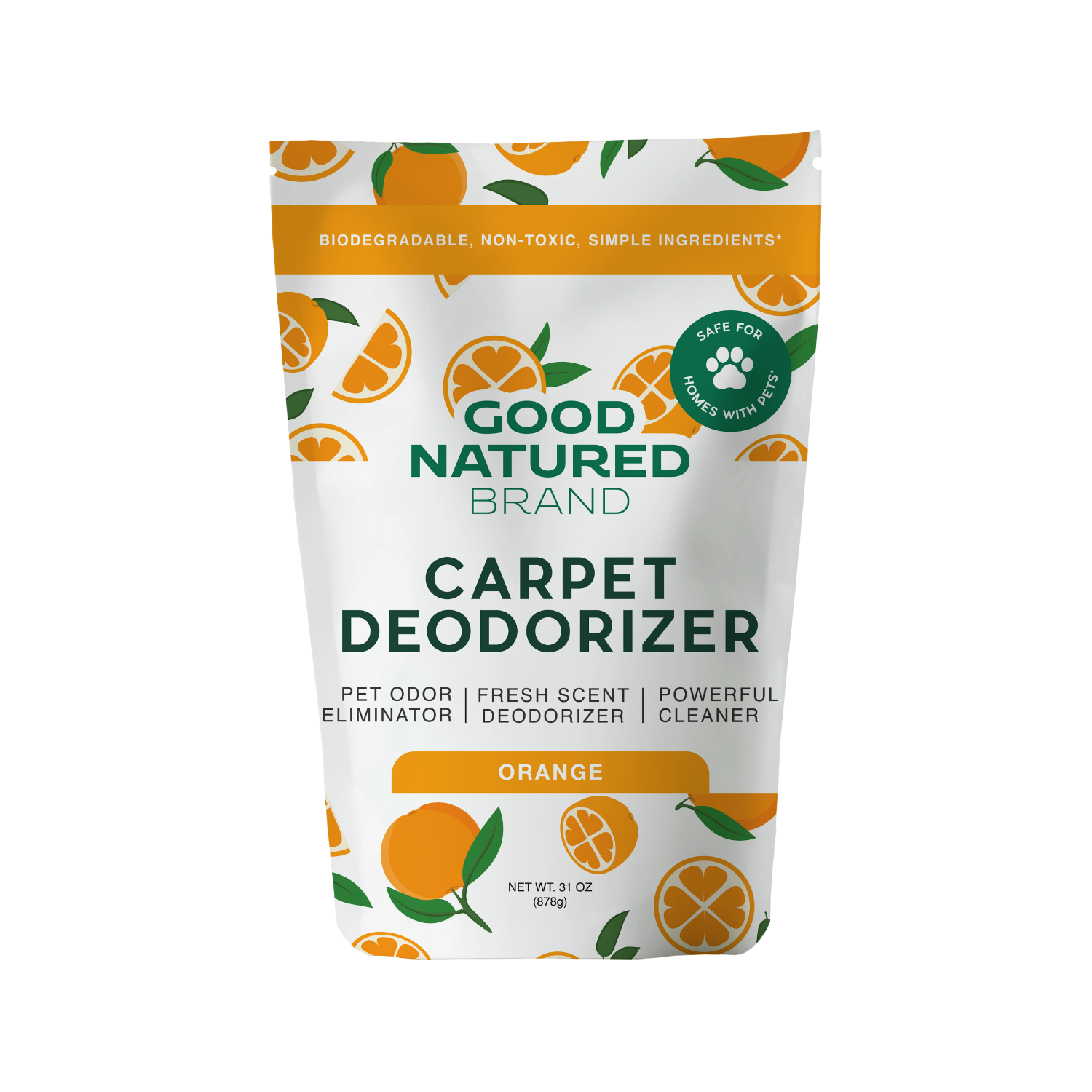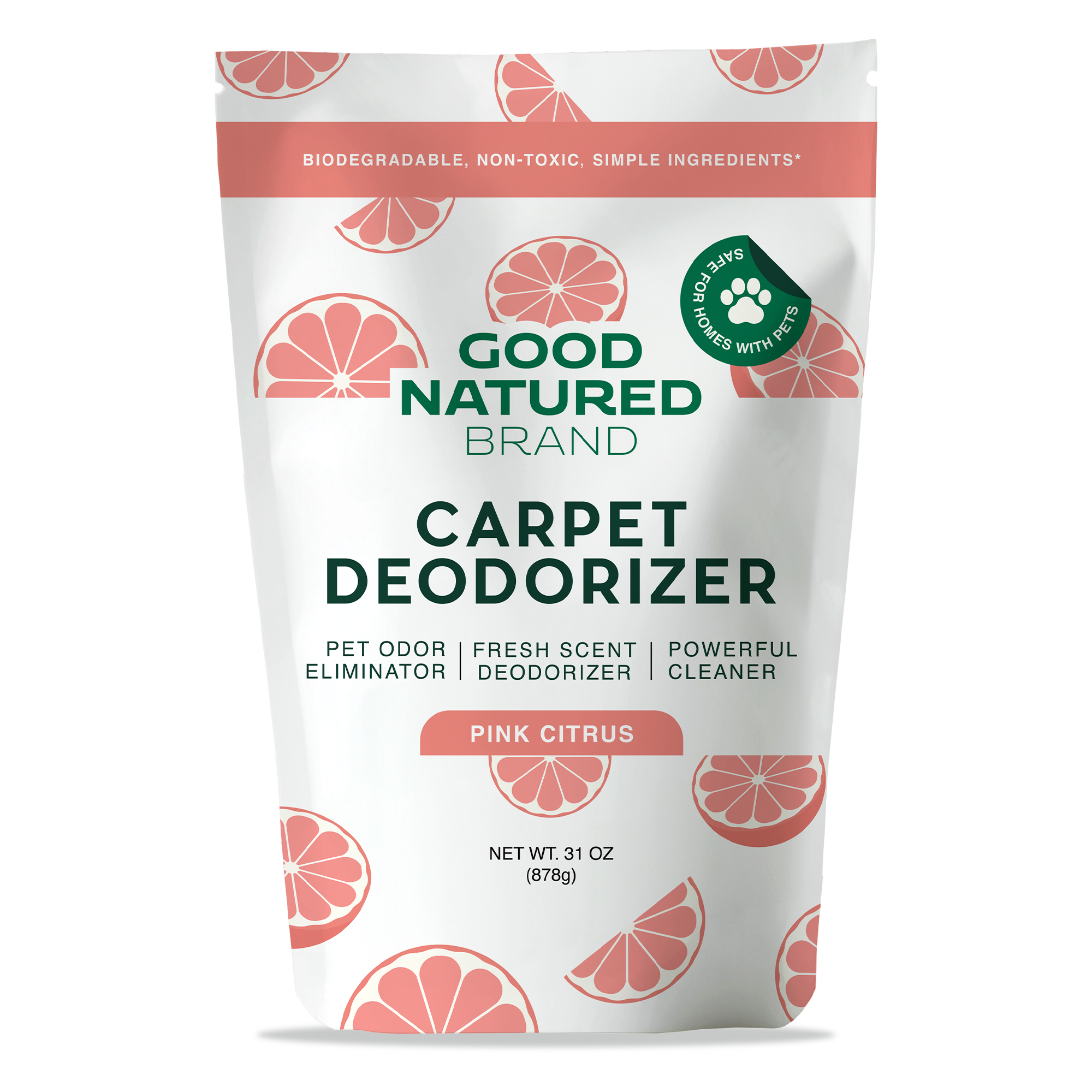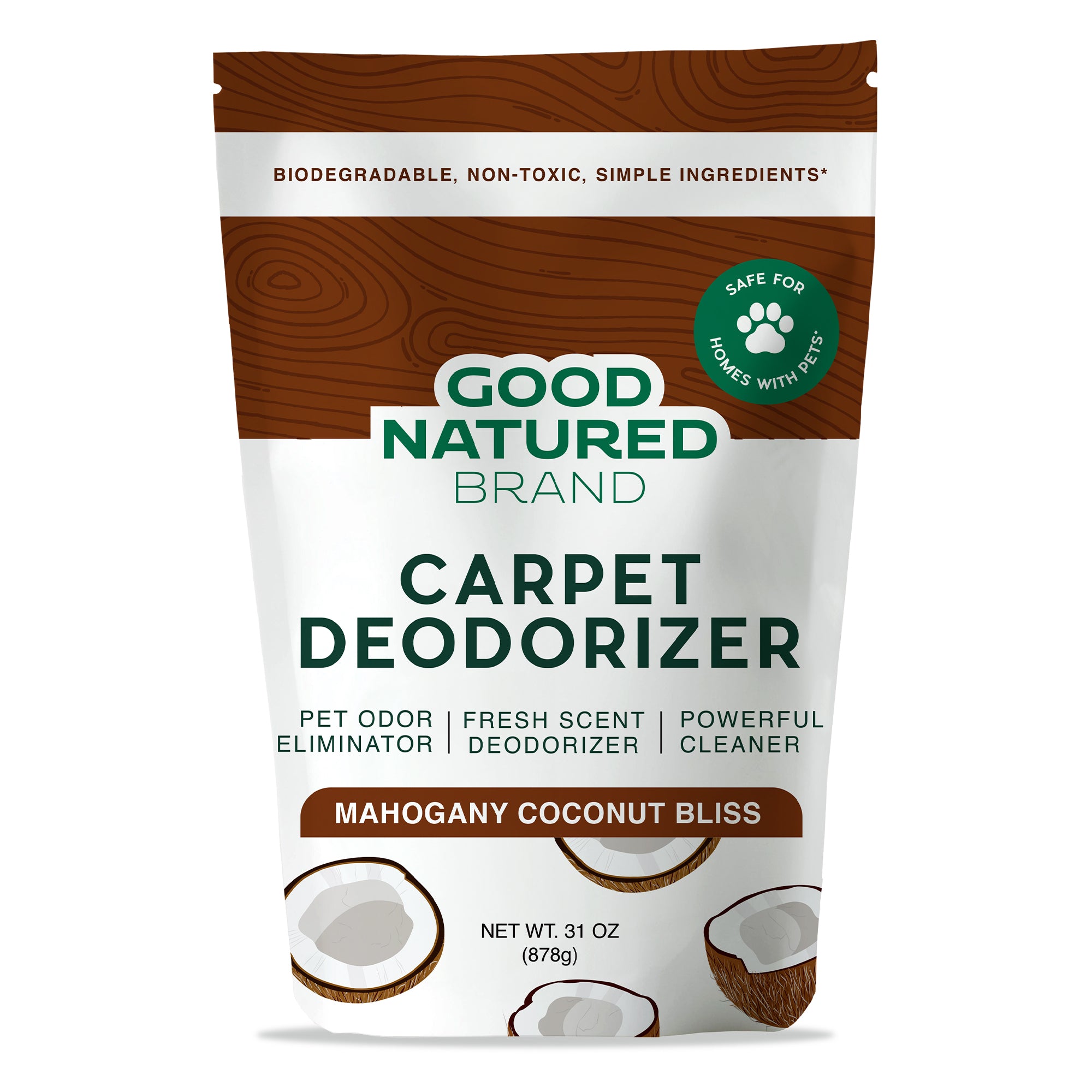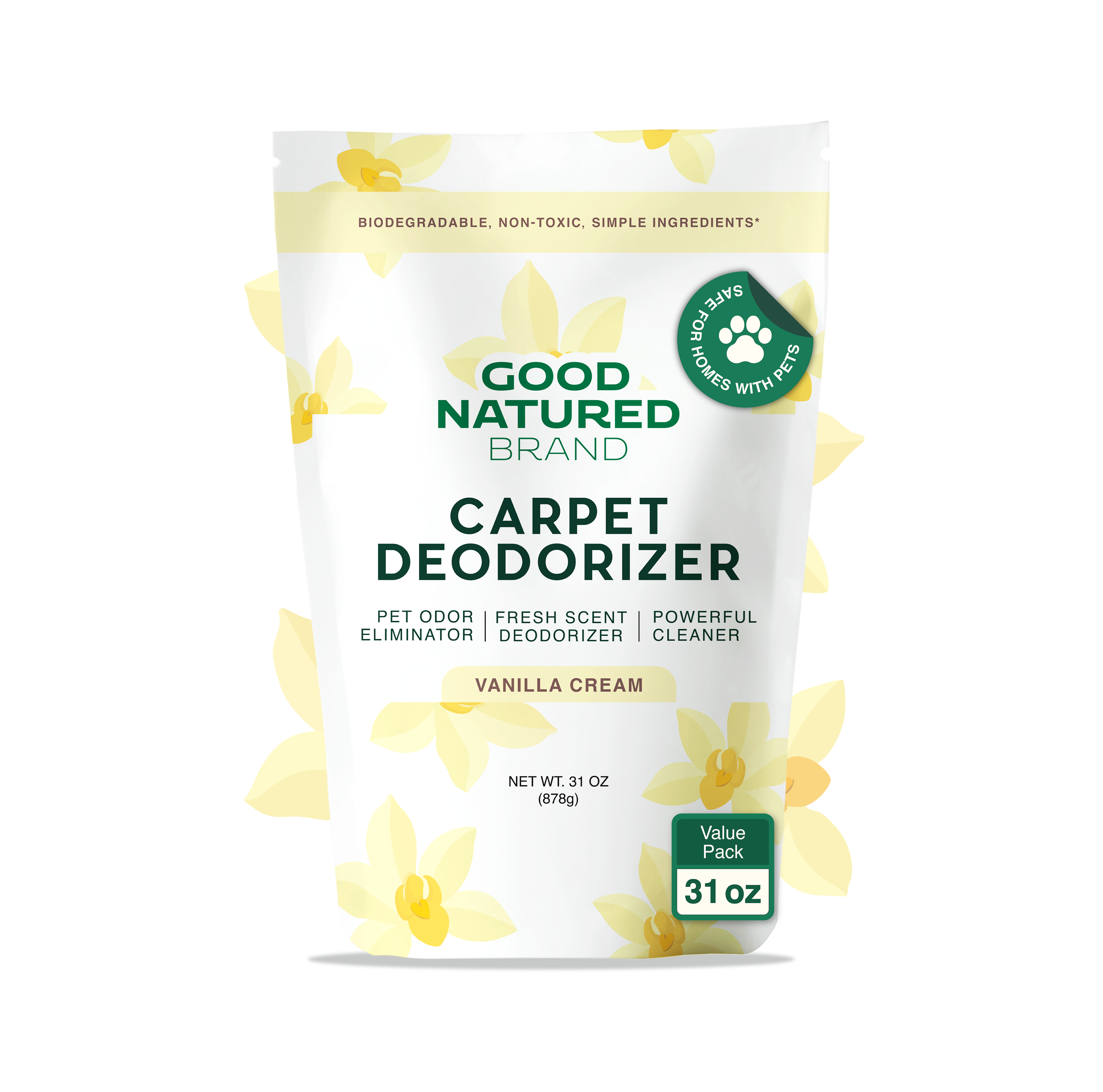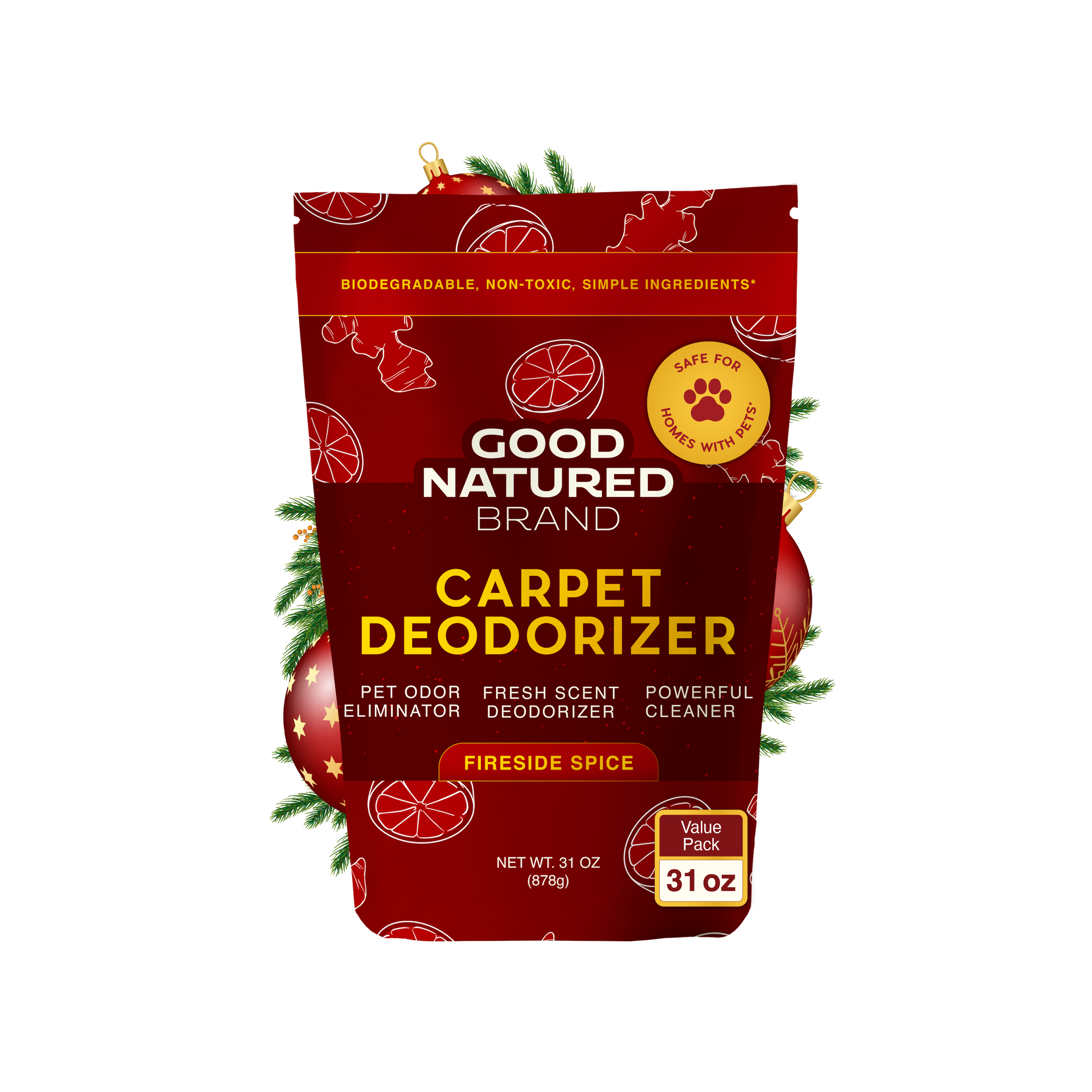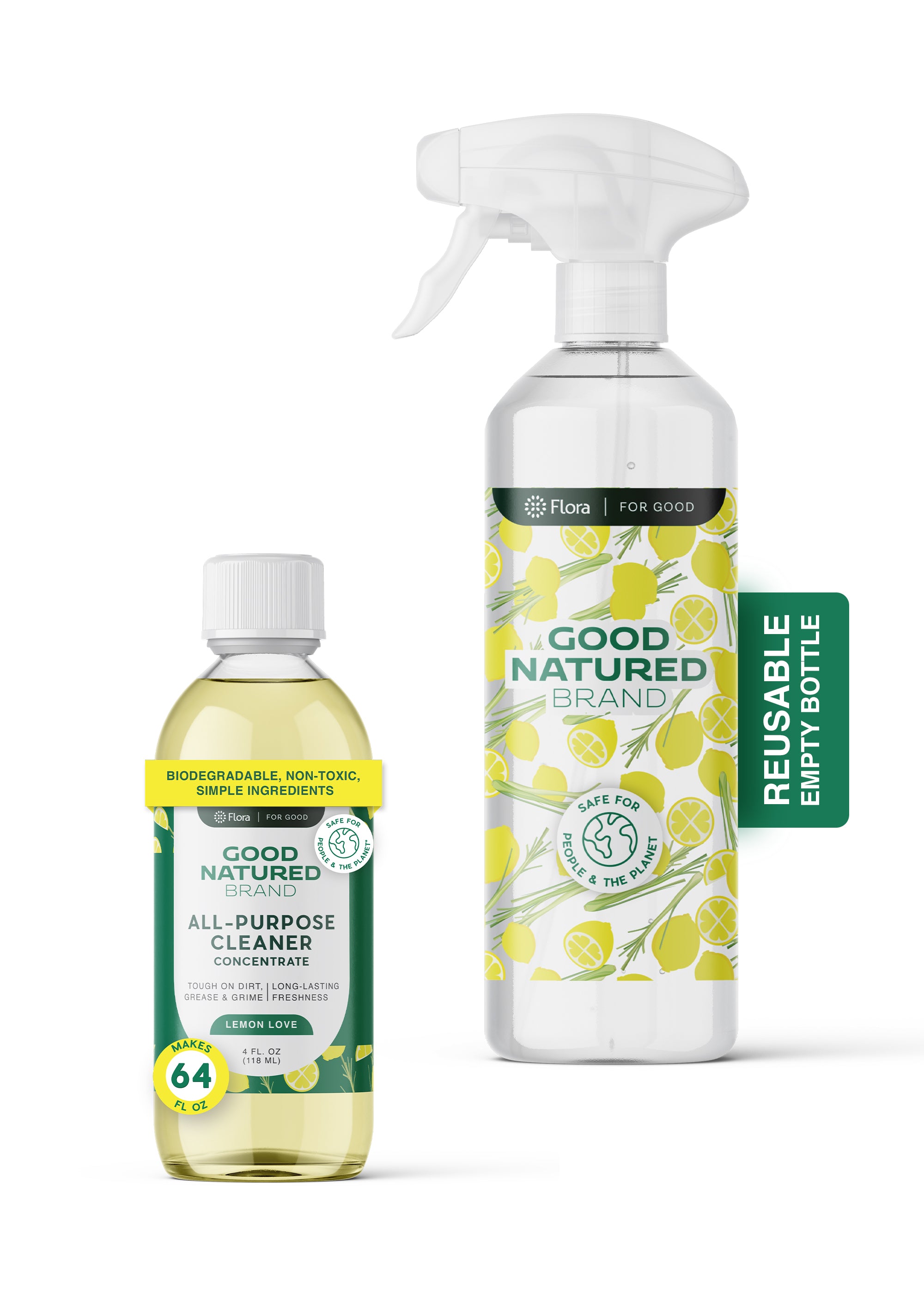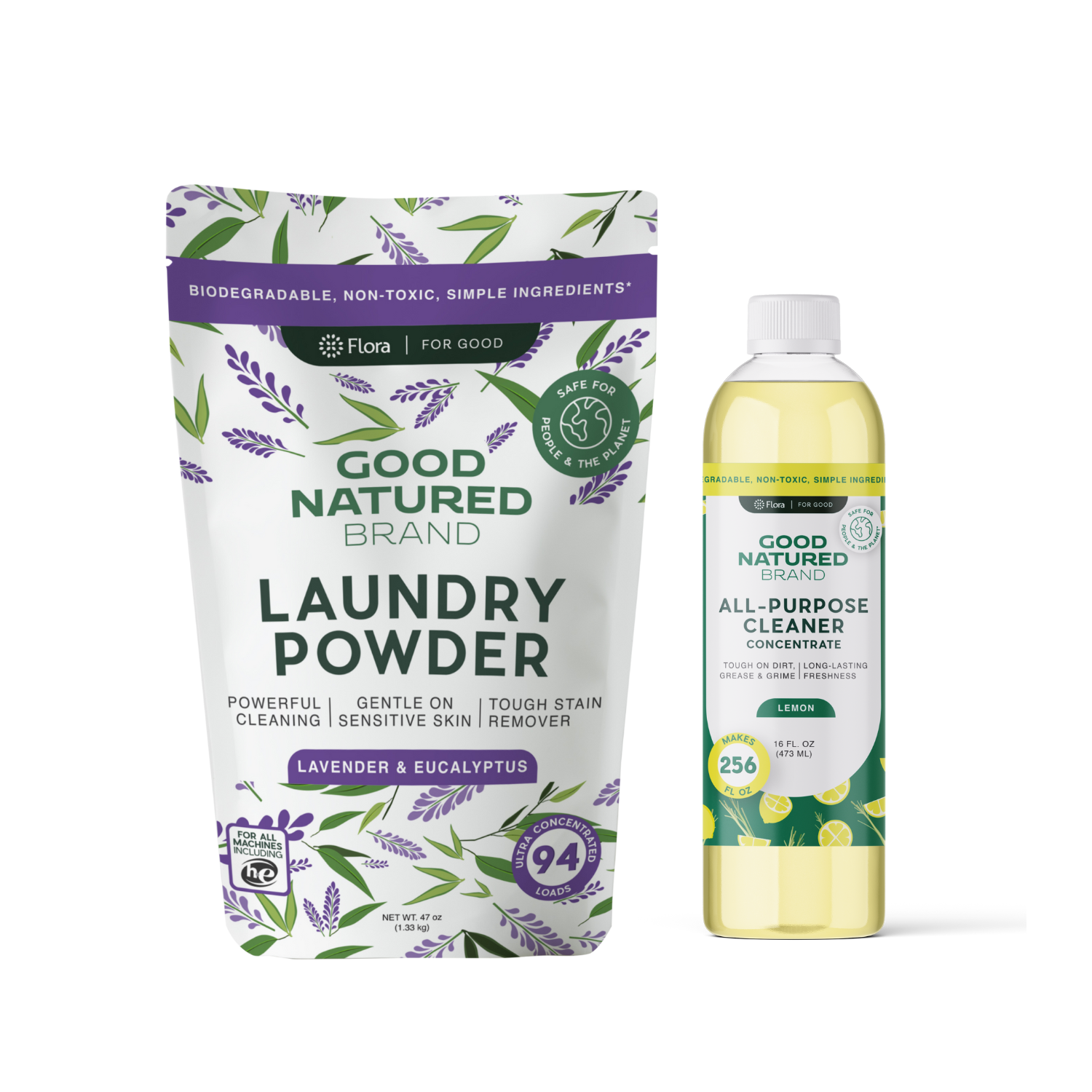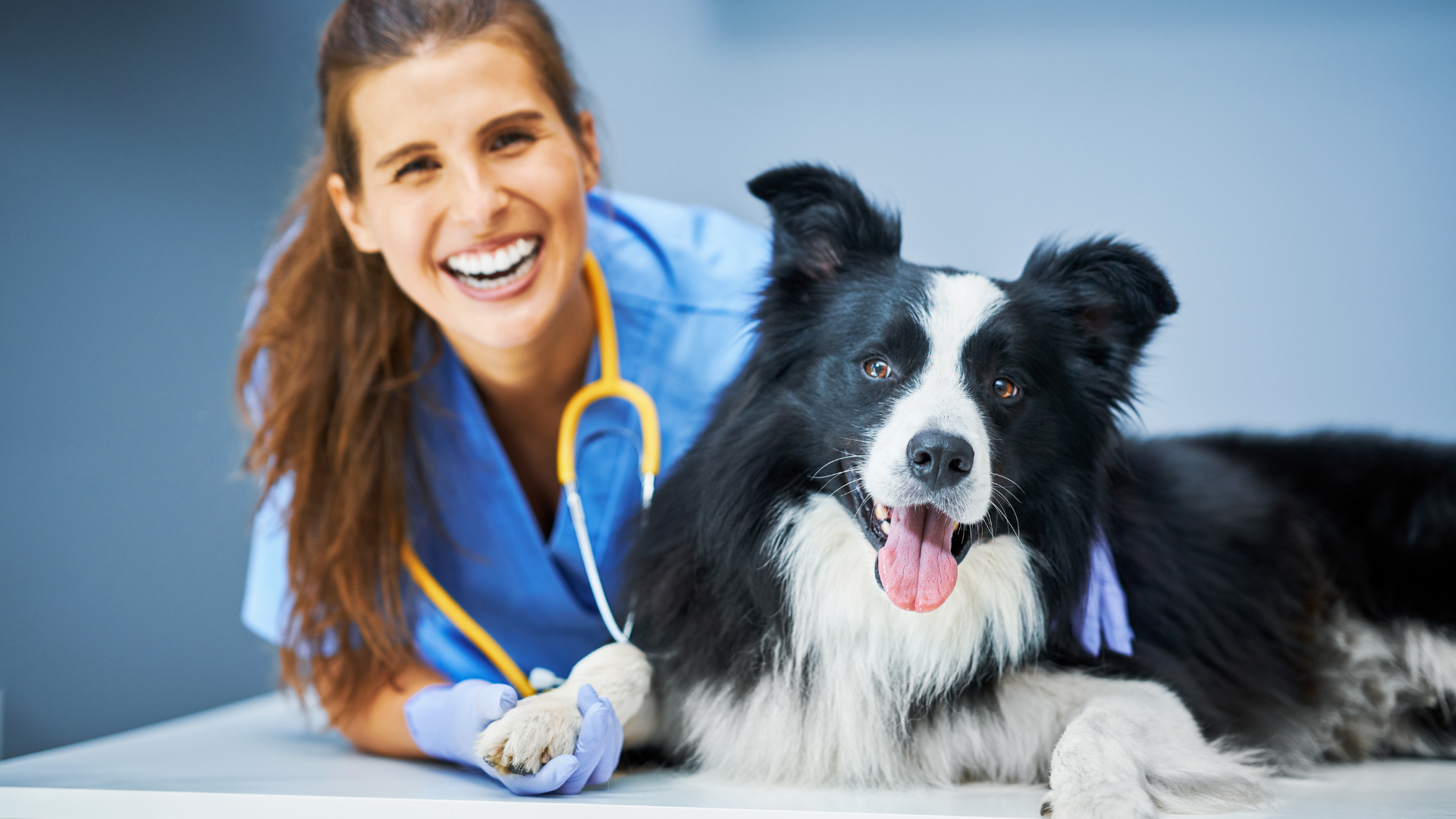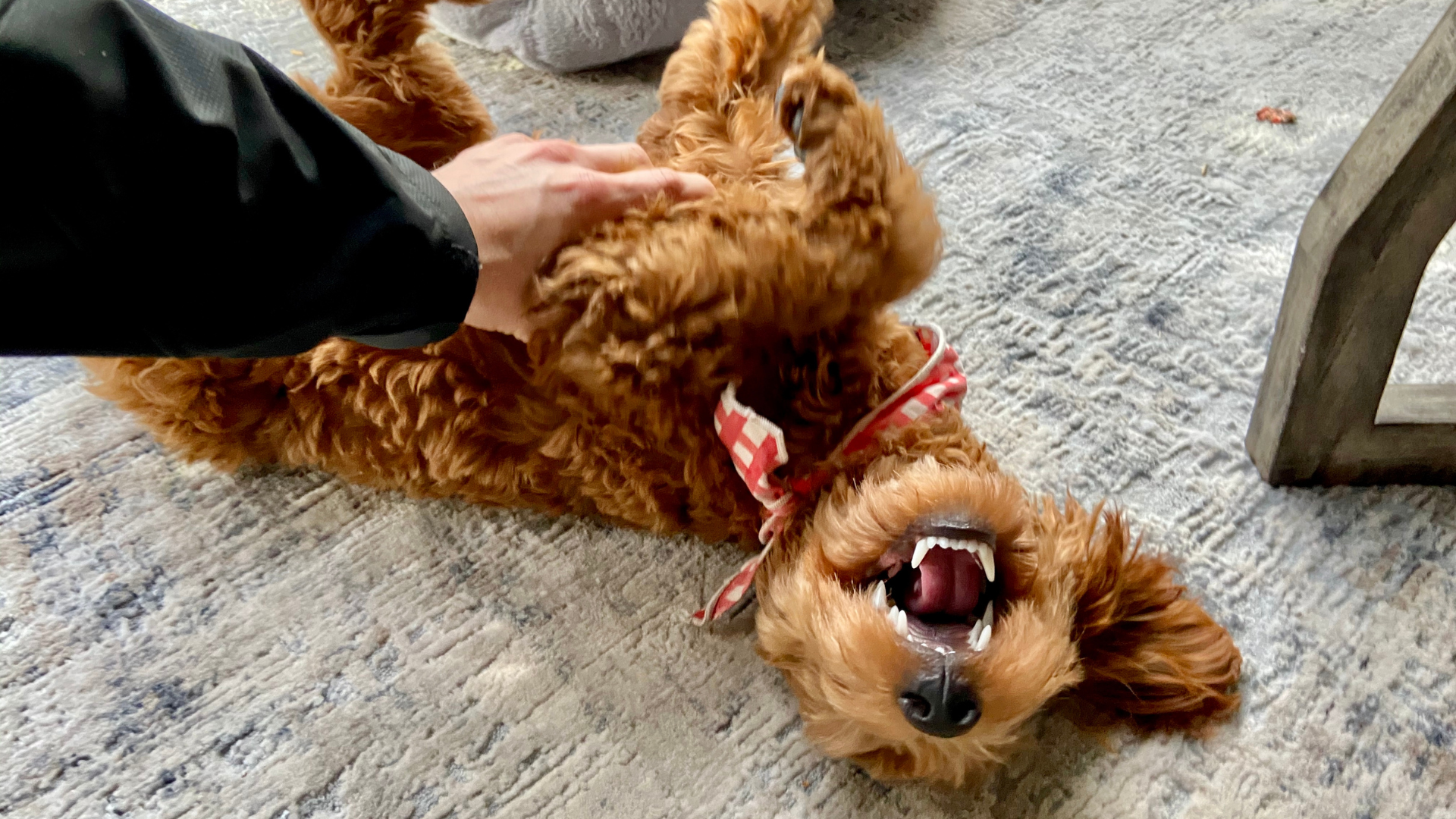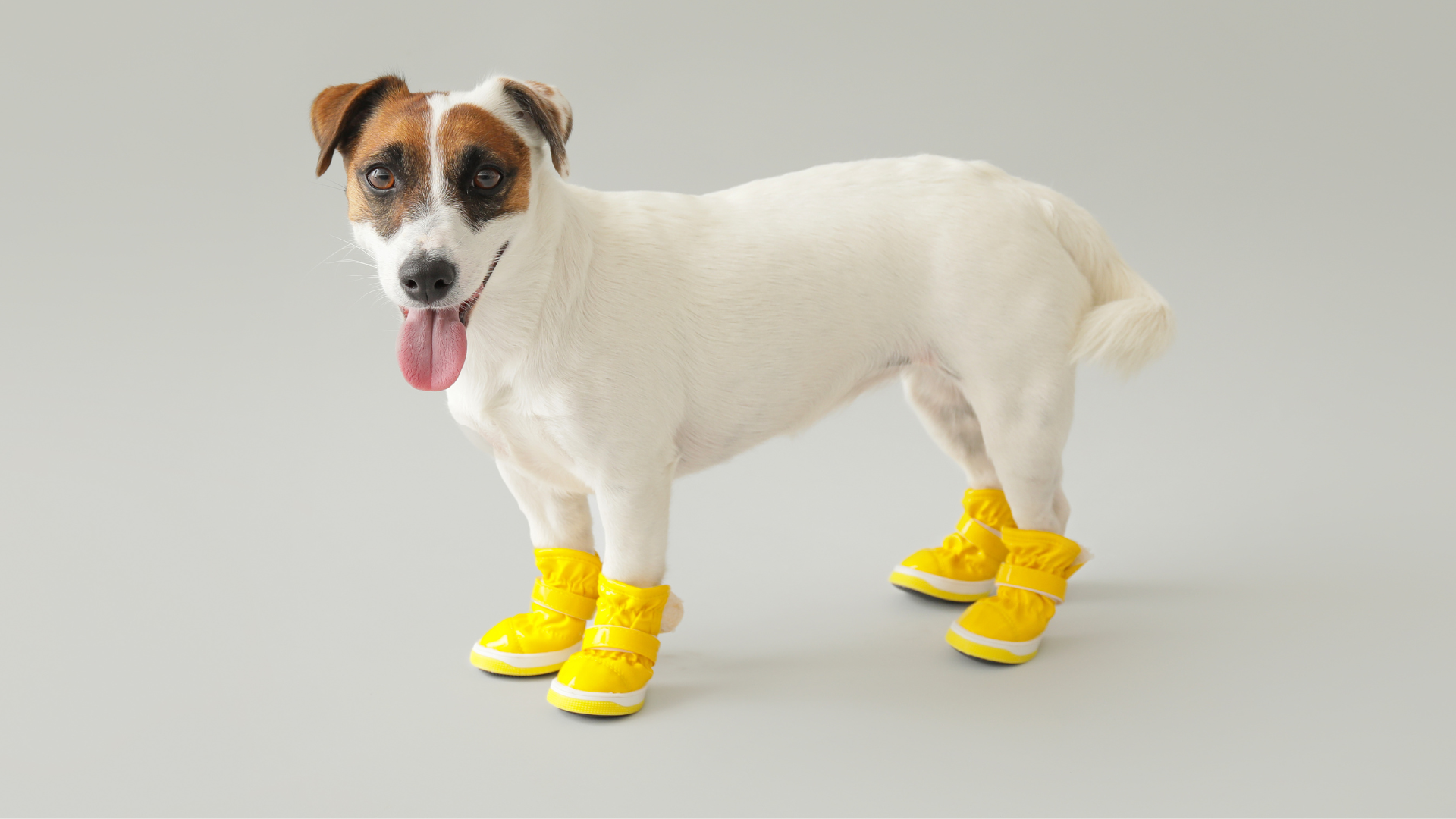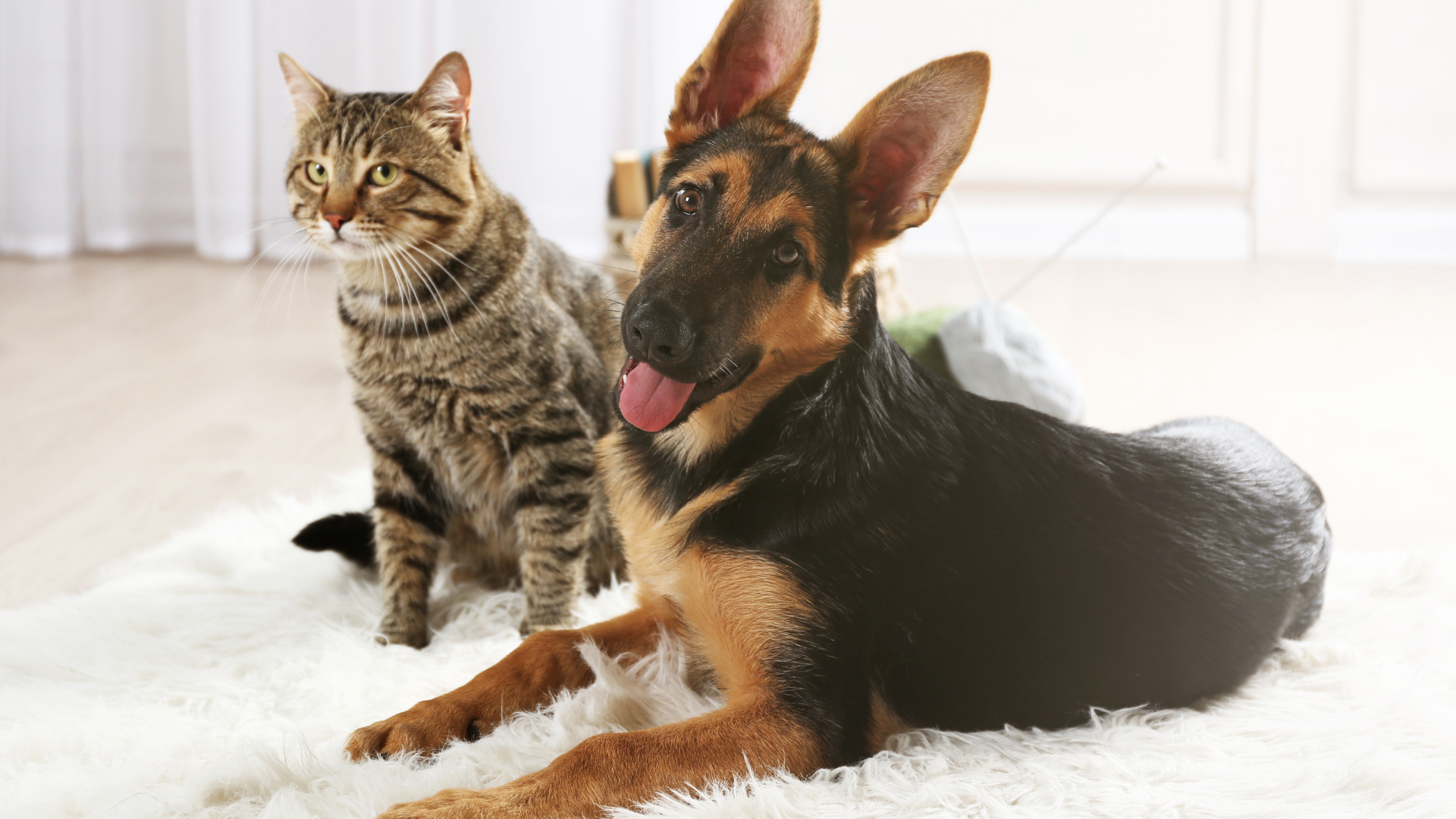Understanding Why People Ask “Is Peppermint Oil Safe for Dogs?”
Peppermint oil has become increasingly popular in homes for its refreshing scent, cooling sensation, and natural cleaning or pest-repelling uses. But while peppermint oil offers many benefits for humans, the same cannot always be said for dogs. The question “Is peppermint oil safe for dogs?” has grown more common as pet parents look for natural solutions for cleaning, freshening their homes, and tackling fleas.
The truth is that essential oils—peppermint included—must be used with extreme caution around pets. Dogs are far more sensitive to chemical compounds, fragrances, and oils than humans. Their bodies metabolize these substances differently, and what smells “natural” and pleasant to us can trigger toxicity or respiratory irritation in them.
For pet parents committed to safe cleaning and eco-friendly living, the safest approach is choosing truly pet-safe household products. Brands like Good Natured Brand focus on non-toxic, dog-friendly cleaning tools that help you maintain a fresh home without risking your pet’s health. Learn more at: https://www.goodnaturedbrand.com/.
What Exactly Is Peppermint Oil?
Peppermint oil is an essential oil extracted from the peppermint plant (Mentha piperita). It contains powerful aromatic compounds, mainly menthol and menthone, which give it its recognizable cooling and invigorating scent.
Common Uses of Peppermint Oil in Homes
-
Natural air freshening
-
DIY cleaning sprays
-
Insect and rodent repellent
-
Laundry scent boosting
-
Holiday and seasonal home fragrances
-
Personal aromatherapy
The strong scent activates quickly and can overpower other household odors—which is why many pet parents wonder whether peppermint oil can help with dog odors around carpets, bedding, or litter box areas. But using essential oils in these spaces can be risky for dogs.
Is Peppermint Oil Safe for Dogs? A Clear, Science-Based Answer
When asking whether peppermint oil is safe for dogs, it’s important to understand that essential oils affect dogs very differently from humans. Peppermint oil contains concentrated chemical compounds that can be irritating, toxic, or even harmful to dogs when inhaled, ingested, or applied to the skin.
Why Peppermint Oil Can Be Harmful to Dogs
-
Dogs metabolize essential oils through their liver, which can become overwhelmed by terpenes or phenolic compounds
-
Peppermint oil can irritate the skin and mucous membranes
-
Inhaling peppermint vapors may cause respiratory distress
-
Diffused oils can settle on dog fur, bedding, or food bowls
-
Oils can be transferred to paws, then ingested during licking
Even small quantities may cause sensitivity in some dogs, especially puppies, seniors, and dogs with respiratory or liver conditions.
Signs of Peppermint Oil Toxicity in Dogs
Pet parents should immediately stop exposure and consult a veterinarian if their dog experiences:
-
Drooling
-
Vomiting
-
Tremors
-
Labored breathing
-
Lethargy
-
Skin redness or itching
-
Pawing at the mouth or face
-
Nose or eye irritation
These signs can appear quickly after exposure or may take hours depending on the method of contact.
When Peppermint Oil Is Not Safe for Dogs
To fully answer the question “Is peppermint oil safe for dogs?”, it’s essential to understand real-life situations where peppermint oil becomes hazardous.
Unsafe Peppermint Oil Situations
-
Applying peppermint oil directly to your dog’s coat (can cause burns or toxic absorption)
-
Adding peppermint oil to dog shampoo or wipe-down solutions
-
Using peppermint oil on flea collars, bandanas, or dog bedding
-
Diffusing peppermint oil in small or poorly ventilated rooms
-
Spraying peppermint oil solutions on floors that dogs walk on
-
Adding peppermint oil to laundry detergents used for dog blankets
These practices—often shared on DIY blogs or social media—can unknowingly harm dogs.
Why Diffusers Can Be Dangerous
Essential oil diffusers release microscopic droplets into the air that then settle on surfaces like carpets, dog beds, bowls, and your dog’s fur. When your dog licks its paws or fur, ingested peppermint oil may cause toxicity.
Why “Natural” Doesn’t Always Mean Safe for Dogs
Many pet parents assume natural products are automatically pet-friendly, but peppermint oil is a perfect example of something natural that may still be unsafe.
The Problem With Essential Oil Marketing
Words like “organic,” “pure,” “natural,” and “therapeutic-grade” do not guarantee dog safety. Essential oils are concentrated extracts, not gentle herbal remedies.
Dilution Does Not Remove Risk
Even heavily diluted peppermint oil can irritate a dog's skin or respiratory system. A “little bit” is not necessarily harmless when it comes to essential oils.
This is why many veterinarians recommend choosing pet-safe cleaning products rather than DIY essential-oil mixtures for home freshening or scent control.
For example:
-
To safely freshen carpets, pet owners can use Good Natured Brand’s Carpet Deodorizers (https://www.goodnaturedbrand.com/collections/carpet-deodorizers) instead of homemade peppermint carpet powders.
-
To deep-clean pet bedding without essential oils, use Good Natured Brand’s Laundry Powders (https://www.goodnaturedbrand.com/collections/laundry-powders), formulated without irritating oils.
-
For safe surface cleaning, Good Natured Brand’s All-Purpose Cleaners (https://www.goodnaturedbrand.com/collections/all-purpose-cleaners) deodorize effectively without exposing dogs to essential oil vapors.
Can Peppermint Oil Ever Be Beneficial for Dogs?
Some sources claim peppermint oil repels fleas or can soothe dogs, but the risks far outweigh any potential benefits. While peppermint contains insect-repelling properties, using it around pets is rarely recommended because:
-
It is not a proven or safe flea treatment
-
Concentrations required for effectiveness may be toxic
-
Safer alternatives exist for flea management
Limited Cases Where Peppermint Oil Is Used
Only under veterinary guidance might peppermint oil be used in extremely diluted, professionally formulated sprays. This is not the same as home use or applying pure essential oil.
The average pet parent should avoid using peppermint oil directly on or around dogs without expert direction.
How to Tell If Your Dog Is Sensitive to Peppermint Oil
Dogs show signs of peppermint sensitivity even at low levels of exposure.
Common Symptoms of Sensitivity
-
Sneezing or reverse sneezing
-
Coughing
-
Rubbing their face on the ground
-
Paw licking
-
Restlessness or pacing
Severe Sensitivity Reactions
-
Red eyes
-
Excessive drooling
-
Vomiting
-
Difficulty breathing
-
Disorientation
If any of these occur, remove your dog from the area immediately and improve ventilation.
Safer Alternatives to Peppermint Oil for Dog-Friendly Homes
You don’t need peppermint oil to keep your home smelling clean, remove pet odors, or maintain freshness. There are safer, more effective alternatives designed specifically for homes with dogs.
Carpet Odor Solutions
Instead of using peppermint-scented powders, choose pet-safe options like Good Natured Brand’s Carpet Deodorizers (https://www.goodnaturedbrand.com/collections/carpet-deodorizers). These products remove odors naturally without irritating your dog's respiratory system.
Freshening Dog Bedding
Skip using peppermint oil in laundry. Wash dog beds, blankets, and toys using Good Natured Brand’s Laundry Powders (https://www.goodnaturedbrand.com/collections/laundry-powders), which are non-toxic, fragrance-free, and safe for sensitive pets.
Cleaning Floors and Surfaces
Instead of peppermint-based DIY cleaning sprays, use Good Natured Brand’s All-Purpose Cleaners (https://www.goodnaturedbrand.com/collections/all-purpose-cleaners). These are made without essential oils and eliminate odors safely.
Pet-Friendly Air Quality
Good ventilation, open windows, and HEPA air purifiers do a better job at maintaining a fresh home than essential oils ever can.
If you’d like more eco-friendly pet care tips, explore: https://www.goodnaturedbrand.com/pages/blog.
Vet-Approved Guidelines for Essential Oils Around Dogs
When it comes to essential oils and pets, veterinarians overwhelmingly urge caution. Dogs cannot process essential oils the same way humans do. Their livers metabolize terpenes and phenols slowly, which means even small amounts of peppermint oil may overwhelm their system.
Essential Oils Dogs Should Avoid
Pet toxicologists commonly list peppermint oil alongside the most problematic essential oils for dogs. Others on the “avoid” list include:
-
Tea tree oil
-
Wintergreen oil
-
Eucalyptus oil
-
Pine oil
-
Clove oil
-
Cinnamon oil
These oils can cause vomiting, drooling, skin reactions, tremors, liver stress, or respiratory issues—even when used indirectly in diffusers.
Essential Oils That Are Considered “Safer” (But Still Require Caution)
Some oils like lavender or chamomile may be tolerated in extremely diluted forms, but even these can cause sensitivity. Safe use always depends on your dog’s age, breed, health, and environment.
When to Call a Veterinarian
If your dog was exposed to peppermint oil and shows symptoms such as vomiting, breathing difficulty, tremors, or lethargy, seek veterinary assistance immediately. Essential oil toxicity can escalate quickly, especially in small dogs, puppies, and seniors.
How to Use Peppermint Oil in Your Home Without Endangering Your Dog
Some pet parents still want to use peppermint oil for seasonal scents or insect-repelling benefits. While the safest approach is avoiding peppermint oil entirely, if you do choose to use it, follow strict guidelines.
Keep Diffusers in Well-Ventilated Areas
Always place diffusers:
-
in areas far from your dog
-
high on shelves where vapor droplets won’t land on fur, floors, or bedding
-
in rooms your dog does not spend long periods of time in
Open windows and ensure fresh air flow whenever using essential oils.
Never Use Peppermint Oil on Surfaces Your Dog Contacts
Avoid using peppermint oil mixtures on floors, counters, couches, dog bowls, or any space your dog interacts with. Instead, switch to cleaners specifically formulated to be pet-safe.
For example, Good Natured Brand’s All-Purpose Cleaners (https://www.goodnaturedbrand.com/collections/all-purpose-cleaners) clean surfaces effectively without the respiratory risks associated with peppermint oil.
Avoid Applying Peppermint Oil Topically to Your Dog
Never apply essential oils directly to your dog’s skin or fur—even if a recipe claims to help with fleas. The risk far outweighs the potential benefit.
Safe Housetraining and Cleaning Methods Without Peppermint Oil
One of the most common reasons pet owners turn to peppermint oil is for cleaning or odor control, especially around dog messes or pet-accident areas. Fortunately, there are safer and much more effective alternatives.
Completely Removing Pet Odors Prevents Behavioral Problems
Dogs often re-mark areas where they can still smell previous odors. Masking smells with peppermint oil is ineffective and increases health risks.
Using Carpet Deodorizers for Safe Odor Control
For removing deep odors from carpets, use Good Natured Brand’s Carpet Deodorizers (https://www.goodnaturedbrand.com/collections/carpet-deodorizers). They neutralize smells naturally without relying on strong essential oils.
Washing Dog Bedding and Fabrics Without Essential Oils
Many DIY cleaning tips suggest adding peppermint oil to laundry. This is unsafe. Instead, wash bedding, blankets, and soft items with Good Natured Brand’s Laundry Powders (https://www.goodnaturedbrand.com/collections/laundry-powders), which remove odors effectively and safely.
Cleaning Floors, Walls, and Dog Areas Without Risk
Peppermint oil floor cleaners can irritate paws and noses. Instead, clean using Good Natured Brand’s All-Purpose Cleaners (https://www.goodnaturedbrand.com/collections/all-purpose-cleaners), which are gentle, non-toxic, and pet-friendly.
These products offer powerful cleaning without exposing dogs to oils they cannot tolerate.
Dog-Safe DIY Alternatives to Peppermint Oil
If you enjoy natural home care, there are safer DIY options that freshen your house without risking your dog's health.
Dog-Safe Odor Spray With Vinegar
A diluted white vinegar spray (1:1 with water) can help neutralize odors on hard surfaces. Vinegar scent fades quickly and doesn’t irritate dogs the way peppermint oil can.
Baking Soda for Carpets and Rugs
Baking soda absorbs odors naturally. Sprinkle lightly on carpets, let it sit for 20–30 minutes, and vacuum thoroughly.
For deeper cleaning afterward, finishing with Carpet Deodorizers is both safe and effective.
Sunlight and Fresh Air for Bedding
Sunlight helps neutralize odors and bacteria in fabric items. Air out dog beds and blankets outdoors regularly, then wash with Laundry Powders for best results.
Common Myths About Peppermint Oil and Dogs
Because peppermint oil has long been touted as a “natural cure-all,” misinformation is common. Understanding what’s true—and what isn’t—helps keep your dog safe.
Myth: Peppermint Oil Naturally Repels Fleas Safely
While peppermint oil can repel pests, it is not a safe flea treatment for dogs. There are far safer, vet-approved flea prevention options available.
Myth: Diluted Peppermint Oil Is Harmless for Dogs
Even diluted oils can irritate a dog’s respiratory tract, skin, or liver. Dilution does not guarantee safety.
Myth: Natural Products Are Automatically Pet-Safe
Many natural substances—like peppermint, tea tree oil, and even certain plants—are toxic to pets. “Natural” does not equal “safe.”
How to Keep Your Home Smelling Fresh Without Peppermint Oil
Dogs are sensitive to strong scents, including essential oils. Creating a clean-smelling home without peppermint oil is not only possible but often more effective.
Improve Indoor Air Quality
-
Open windows regularly
-
Use HEPA air purifiers
-
Avoid chemical air fresheners
-
Clean pet areas frequently with safe products
Use Pet-Friendly Cleaning Products
Peppermint oil is unnecessary when you have access to naturally effective solutions like:
-
Good Natured Brand’s Carpet Deodorizers for odor control
-
Good Natured Brand’s Laundry Powders for pet bedding
-
Good Natured Brand’s All-Purpose Cleaners for daily cleaning
These options avoid toxic essentials oils while still keeping your home fresh.
Explore Additional Safe-Cleaning Tips
Good Natured Brand’s blog offers eco-friendly guides for pet households: https://www.goodnaturedbrand.com/pages/blog
What to Do If Your Dog Was Accidentally Exposed to Peppermint Oil
If your dog gets peppermint oil on its fur, skin, or paws—or inhales or ingests it—act quickly.
If Peppermint Oil Contacts Skin or Fur
-
Wash gently with mild soap and warm water
-
Rinse thoroughly
-
Avoid essential oil-based pet shampoos
If Peppermint Oil Is Inhaled
-
Take your dog to a well-ventilated area
-
Observe for coughing, wheezing, or drooling
-
Remove diffusers immediately
If Peppermint Oil Is Ingested
-
Contact your veterinarian or emergency vet ASAP
-
Watch for signs of toxicity (vomiting, tremors, lethargy)
Prompt action increases the chances of full recovery.
Is Peppermint Oil Safe for Dogs?
The simplest, safest answer is no—peppermint oil is not recommended for dogs in most homes. While it’s natural and appealing to humans, peppermint oil can irritate a dog’s respiratory system, skin, and internal organs. Even diffusers, floor sprays, and DIY cleaners can expose dogs to unsafe levels of essential oils.
Fortunately, you don’t need peppermint oil to enjoy a clean, fresh, odor-free home. Pet-safe cleaning solutions like Carpet Deodorizers, Laundry Powders, and All-Purpose Cleaners allow you to maintain a naturally clean space without risking your dog’s health.
For more eco-friendly cleaning tools and pet-safe alternatives, visit the Good Natured Brand homepage: https://www.goodnaturedbrand.com/
And for more guides on safe pet care, explore the Good Natured Brand blog: https://www.goodnaturedbrand.com/pages/blog
